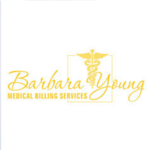Medical coding is the transformation of healthcare diagnosis, procedures, medical services, and equipment into universal medical alphanumeric codes. The accurate assignment of these codes is critical for healthcare providers, medical billing companies, and health insurance organizations to receive proper reimbursement for services rendered. This press release will provide an overview of what medical coding is, why it's important, and how it works in the healthcare system.
The Role of Medical Coders
Medical coders are healthcare business professionals who review clinical documentation provided by doctors and other healthcare providers and assign the appropriate medical codes. These medical codes are used for:
Billing purposes
Reimbursement claims
Databases and registries for internal record keeping
Data analysis on trends, costs, disease patterns etc.
There are two main types of medical coding systems:
CPT and HCPCS Codes
CPT (Current Procedural Terminology) codes are numeric codes used to describe medical procedures and services such as office visits, surgeries, diagnostic tests etc. HCPCS (Healthcare Common Procedure Coding System) codes are alphanumeric codes that represent healthcare equipment, supplies and drugs.
ICD Codes
ICD (International Classification of Diseases) codes describe a patient's diagnosis and medical condition. These are numeric or alphanumeric codes organized by disease type or body system. ICD codes provide specific data on prevalence of diseases and illnesses.
Accurate coding is essential because healthcare payers (insurance companies, Medicare etc.) use these codes to determine how much they will pay for each service rendered. Errors and inaccurate coding can lead to reduced or rejected reimbursement claims. Medical billing software like NYBillPro can help manage reimbursement claims for providers who service Medicaid patients.
Education and Certification for Medical Coders
To become a medical coder, individuals must complete formal training through coding certification programs. Some of the major organizations providing certifications for medical coders are:
American Academy of Professional Coders (AAPC)
American Health Information Management Association (AHIMA)
Professional Association of Healthcare Coding Specialists (PAHCS)
These programs teach students about medical terminology, healthcare procedures, coding guidelines, medical record standards, healthcare regulations, and coding classification systems.
Certifications must be renewed every 2-3 years through continuing education courses to ensure that coders stay updated on the latest standards, regulations and technology. Some states also require coders to be licensed.
The Importance of Accurate Medical Coding
Accurate medical coding is crucial for the smooth functioning of the healthcare system. Here are some key reasons why proper medical coding matters:
Ensures accurate medical billing and timely reimbursement
Provides data to improve healthcare services and lower costs
Tracks information on outbreaks of disease and chronic illness patterns
Facilitates research on effectiveness of treatments and procedures
Allows detailed analysis of health trends among population groups
Supports development of health policies, plans and reforms
As healthcare delivery continues to evolve, medical coding will remain a vital process that touches every aspect of patient care, health services administration and medical research.
Original Source of the original story >> Defining Medical Coding






